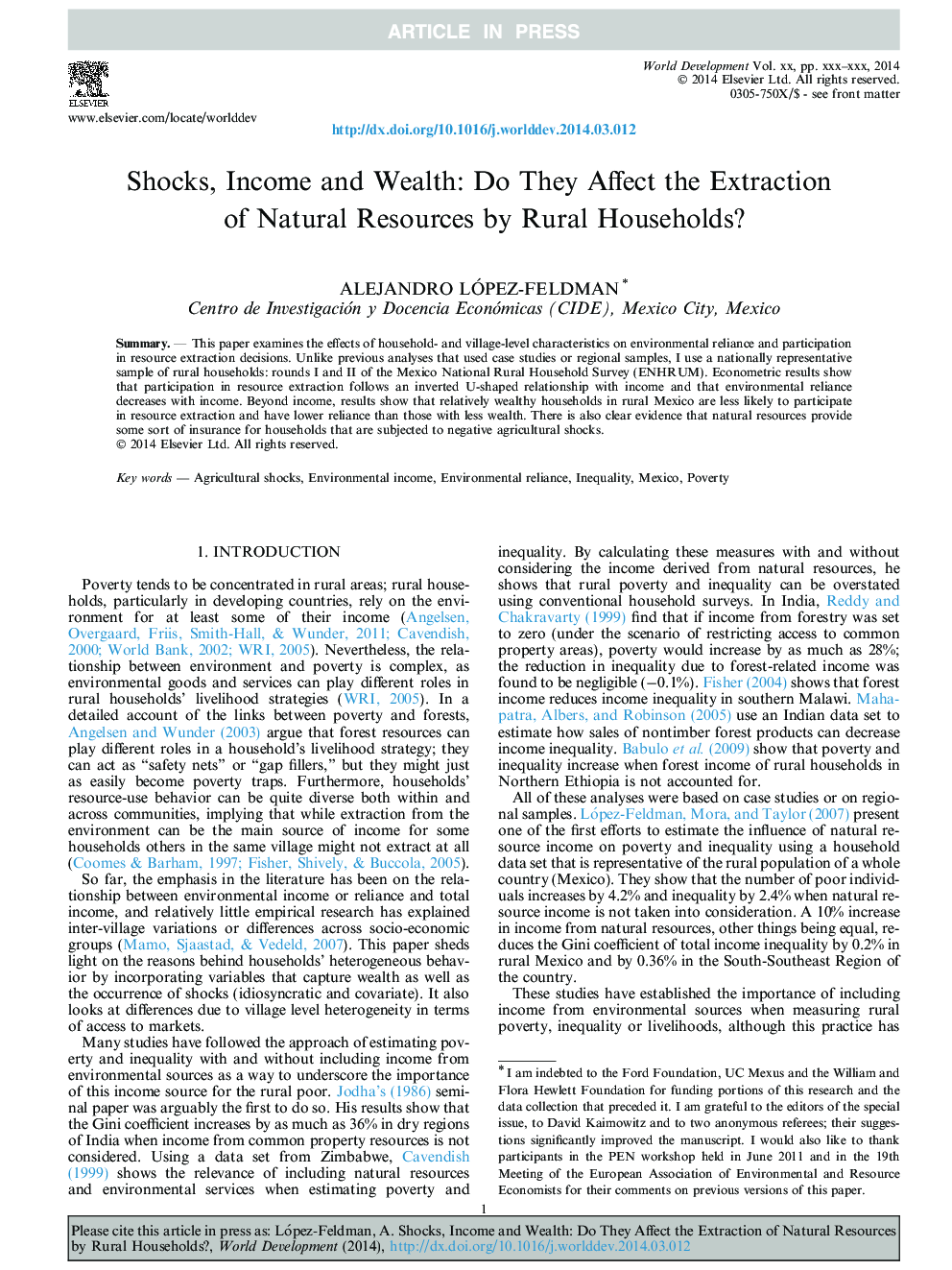| Article ID | Journal | Published Year | Pages | File Type |
|---|---|---|---|---|
| 10484700 | World Development | 2014 | 10 Pages |
Abstract
This paper examines the effects of household- and village-level characteristics on environmental reliance and participation in resource extraction decisions. Unlike previous analyses that used case studies or regional samples, I use a nationally representative sample of rural households: rounds I and II of the Mexico National Rural Household Survey (ENHRUM). Econometric results show that participation in resource extraction follows an inverted U-shaped relationship with income and that environmental reliance decreases with income. Beyond income, results show that relatively wealthy households in rural Mexico are less likely to participate in resource extraction and have lower reliance than those with less wealth. There is also clear evidence that natural resources provide some sort of insurance for households that are subjected to negative agricultural shocks.
Related Topics
Social Sciences and Humanities
Economics, Econometrics and Finance
Economics and Econometrics
Authors
Alejandro López-Feldman,
